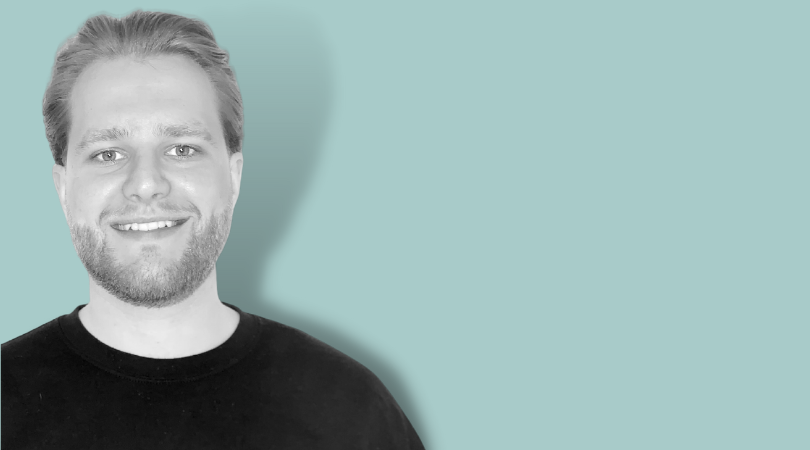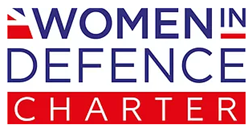
Lots of people say they ‘fell into’ recruitment. What’s the story for you?
I found myself out of work after a stint in insurance and was at a real crossroads with what to do for a job. I was about 23 and looking for work, have always been a ‘people person’ and loved dealing with people everyday. I remember having some friends over to my flat and one of them was a director at my previous company, there were quite a few similarities between insurance broking and recruitment in terms of the sales side and relationship building so I went for an interview, got offered the role and never looked back!
So yeah, I suppose I’m one of those people as well who ‘fell’ into it but what a lucky fall it’s been, 6 years later I’m happier than ever both inside and outside of work!
What’s your favourite part of recruiting, and what’s the biggest challenge of the job?
I think my favourite part is the impact and positive effect you can have on people. From the candidate and client side it’s so rewarding to be able to get that perfect match between the pair of them and make a placement but likewise it’s also amazing to train, mentor and support junior members of the team to help them hit their goals and reach success within the business. Personally, there’s nothing better than training someone on a specific area, then seeing them put it into practise and start to see results from the help given.
In terms of challenges, I’d say the biggest thing is managing the ups and downs that come with recruitment. There are amazing highs of when you make a placement or bring on a new customer but there are also the lows of candidates rejecting offers, or positions being pulled due to budget restraints, sometimes through no fault of your own you can lose a deal. So being able to keep a stable mental state through both of those and ride the waves of recruitment is what it’s all about, a lot easier said than done!
What motivated you to start the Unplugged Podcast?
Counselling and mental health have always been a big passion of mine and I actually set a 2021 goal at the start of the year to host a podcast and have it published on Spotify.
I then joined Orbis a month later at the start of Feb and found myself in an environment that promoted you to be the best version of yourself and to strive to do the things that you enjoy. After a really good chat with Hannah, we decided to combine our passions for all things mental health and the tech industry and after some awful name suggestions from me, Unplugged was born!
Fast forward 6 months, we’ve produced 8 episodes, broken the top 100 charts on iTunes and have another 8 episodes in the pipeline!
When and why did you decide to become qualified as a counsellor?
After going through some personal therapy, I saw the benefits of how amazing counselling can be, but in the same token I understood the stigmas and also the cost behind going to therapy. There were increasing numbers and stats of suicide in young men so I thought what could I do to help that? I started speaking out more and sharing my story on social media and with people I met but I wanted to go one step further. About 2 years ago, my friend signed up to a counselling skills course and told me about it (cheers Oss!), it seemed interesting so I signed up and passed that and am now over halfway through achieving a Level 4 diploma in counselling. I hope to be able to offer free therapy to people who can’t afford the +/- £50 a session and hope to be an example to young men that despite what they’re going through, there is a way out and the dark days will pass. Whether I volunteer on my own or even start up a charity, I just hope I can help others who haven’t been as fortunate as myself.
Do you feel that mental health skills and qualifications (such as mental health first aid/ unconscious bias awareness/ fostering gender inclusive cultures – to name a few in Orbis) are essential for the modern workplace?
100% yes. These courses are not time or labour intensive but can yield such positive results, I also feel that as we are dealing with people day in and day out it’s imperative that we are aware of our own understanding about things. Sadly, and also through no fault of their own, some people have learned behaviours or beliefs that are biased towards genders, sexualities, religions etc and through education we can be the generation that sets the standard to finally eliminate some of the old fashioned and abhorrent beliefs of what is acceptable to say and do in the 21st century.
We often say that in recruitment we ‘deal in people’. Influencing career journeys is something all of us at Orbis take really seriously. Do you feel that your skills in mental health make you a better recruiter, both in the sense of deeper understanding with clients and candidates, and taking on that sense of responsibility?
Really good and also tough question! I can confidently say that without a doubt, my counselling training has improved me as a recruiter. I feel I’m able to understand clients, candidates and even team members much better and feel like it’s improved how I deal with certain situations. Being able to take yourself and your beliefs about something out of the situation and offer complete unbiased and impartial feedback is so difficult but also so beneficial. To fully understand someone and to start to understand what makes them tick and what their motivations are will naturally aid you in finding them the perfect role.
What advice would you give to recruiters starting out in the industry?
Be authentic and be you! Whilst recruitment is not the most difficult job in the world it is by no means easy and also isn’t for everyone. People buy in to people and they can tell if you’re not being fully genuine or trying to be someone you’re not. Being the true version of yourself and the best version of yourself is what you should strive for. Not only for a job in recruitment but also for your own peace of mind and mental health.
Once you can do that, my biggest advice would be to be a sponge and ask questions. Starting out anything new can be scary and daunting, however every (decent/reputable) company will want to support their employees; by listening to all advice and asking questions when you’re unsure you’ll learn quick and progress!



